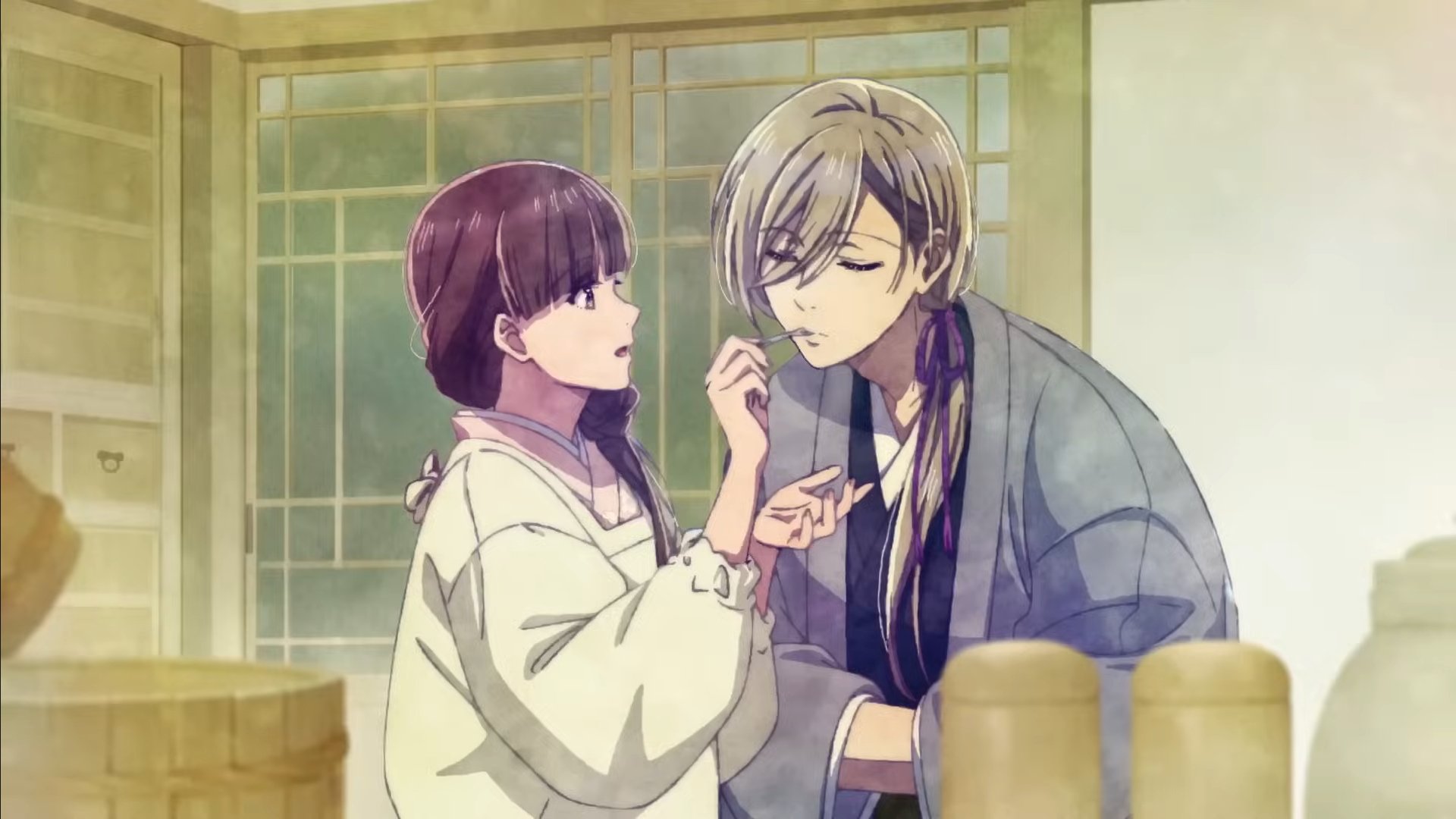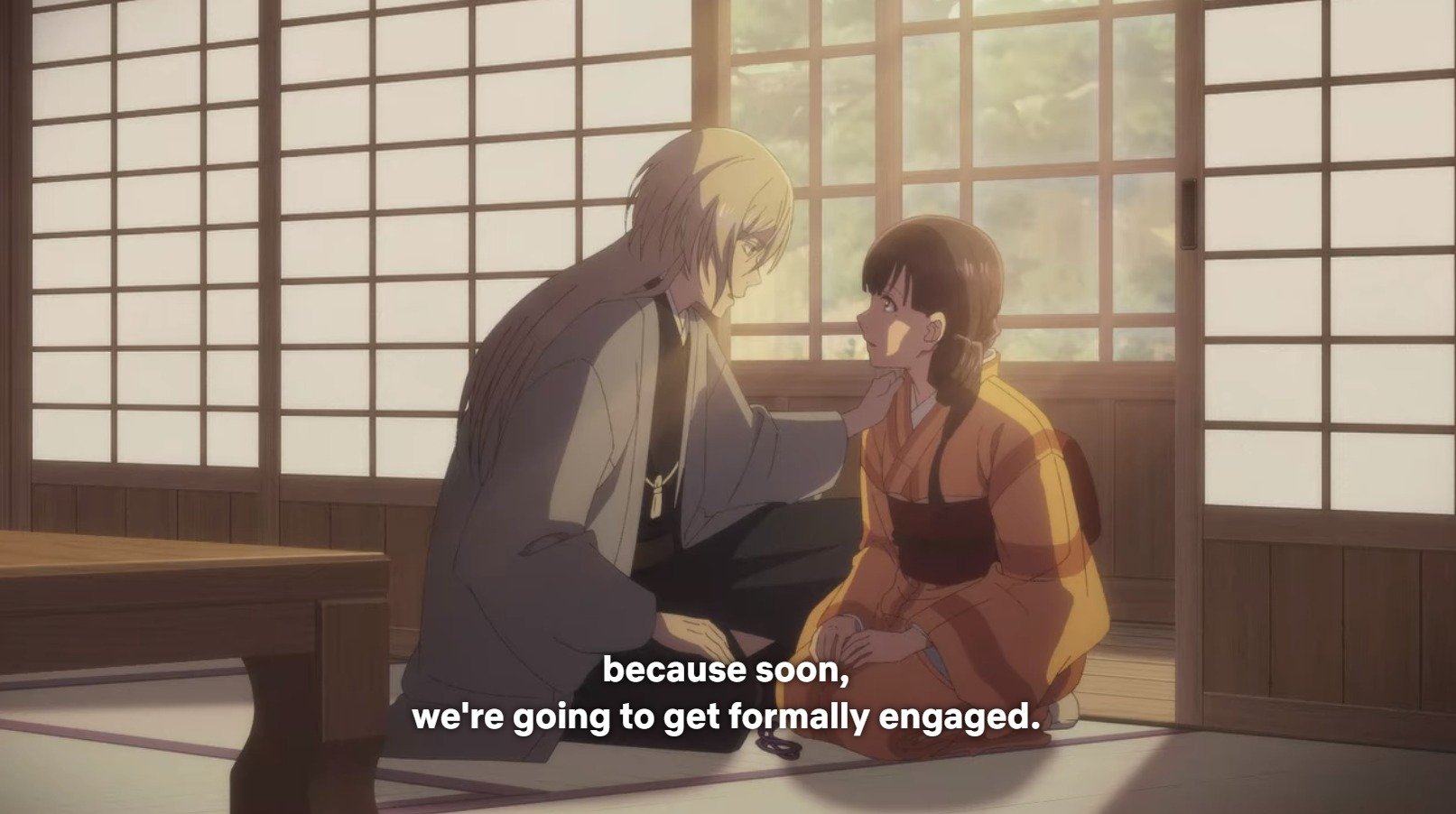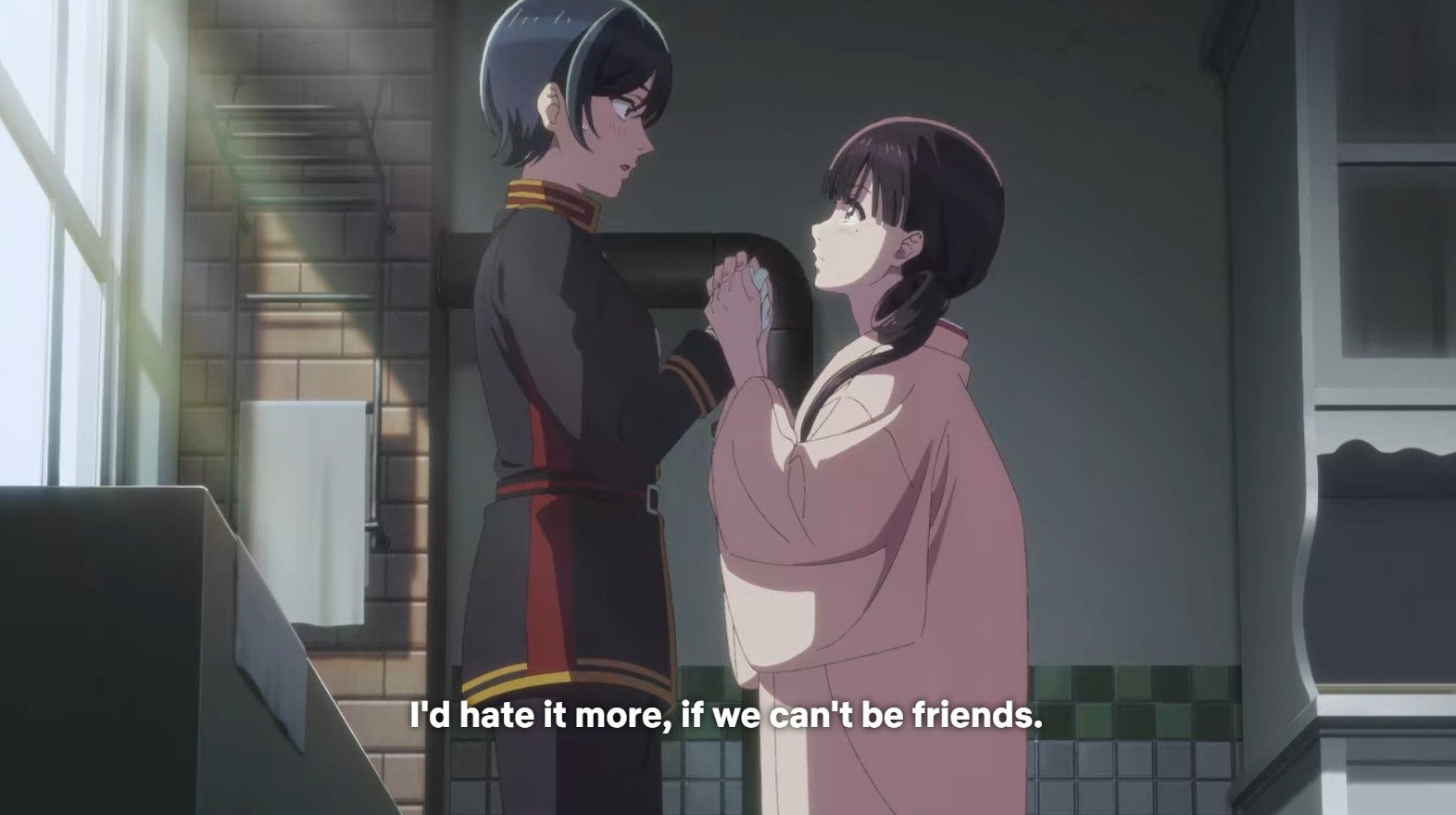My Happy Marriage is one of the more popular anime streamed on Netflix in recent years. Sporting gorgeous sceneries, beautiful character designs, and featuring a Cinderella retelling in the Taisho Era, it’s easy to see why the anime enamored viewers. However, with popularity always comes criticism, and for My Happy Marriage, it’s the portrayal of its main character, Miyo.
Miyo is the Cinderella of the fairytale. After her mother died at a young age, her father quickly remarried and had another daughter. With her father turning a blind eye, her half-sister and stepmother abused Miyo. By the time Miyo meets her prince charming, Kudo, she has lived a life of trauma, insecurities, and meekness.
Her abuse at the hands of her stepfamily isn’t the problem – instead, the criticism came after Kudo sweeps her away from her abusive family. While love blossoms between the two, Miyo quickly settles into her expected position with Kudo: his housewife. She cooks, cleans, and attends to all of his needs while always remaining demure, polite, and soft-spoken – never truly speaking up for herself or desiring anything outside of being useful to him. In many ways, she’s the ideal traditional housewife, but she also represents the stereotype that women have fought to break throughout history. As a result, My Happy Marriage has been accused of espousing conservative and traditional values, specifically of attempting to make those values appealing to women and young girls watching the show.

I don’t personally agree with this particular criticism after watching the first season for three simple reasons. The first is that the anime doesn’t hide its fairytale references, and in fairytales where the girl wins the prince, the emphasis is more about how the prince treats her than anything the girl is required to do. This is particularly true of My Happy Marriage, which spends a lot more time in the first season showing how much Kudo cares for and loves her rather than focusing on any of Miyo’s more traditional activities. The second reason is that the show takes place during the Taisho Era, an era that did return to traditional values in Japan before it started shifting back to more liberal values at the end. Miyo’s expectations of being a wife and her traditional responsibilities to go with it are historically accurate to the setting. The third is that while Miyo herself fits the traditional feminine housewife role, Kudo’s sister, Hazuki, is the opposite. She’s not only divorced, practically impossible in that time period without stigmatization, confident, and thriving, but she’s also introduced as a powerful positive influence on Miyo rather than a negative one.
Despite my disagreement, I do understand the critics’ perspective. Women in general media have oscillated between two roles throughout history: the manipulative vixen who ensnares men with her sex appeal, and the dutiful girl who, initially unnoticed, works hard and eventually gets everything she wants by marrying a rich man and having children. It has taken a long cultural battle for female characters in media to be portrayed with nuance and self-realization, and unfortunately, that cultural battle still hasn’t been won. To this day, viewers tend to easily hate female characters who show any signs of moral complexity. To see Miyo in a successful anime where she, the female lead, again fits neatly into the traditional portrayal of women can be frustrating, to say the least.

However, with the second season, I hope the criticism can finally lay to rest.
While I would’ve liked the show to comment on the Taisho Era’s particular swing to conservatism, and more specifically, the forcing of women back into the kitchen, I wasn’t expecting it. Again, this series was written to reflect fairytales. The first half of the first season was Cinderella, and the second half was Sleeping Beauty. To touch on any actual social issues that Japan might’ve been facing at that time in many ways can shatter the fairytale vibe the series had already set up.
In the second season, the story takes it upon itself to start addressing other issues with the introduction of Kaoruko, a woman in the military who works under Kudo’s command. My Happy Marriage is a historical supernatural show, and part of its worldbuilding includes the presence of demons and people with supernatural abilities. Miyo has supernatural powers, but she is untrained and woefully undereducated on what she can do, so she doesn’t usually participate in any of the demonic battles. Those battles are relegated to the military, Kudo included, and part of his special unit for eradicating supernatural creatures is Kaoruko.
When the show introduces Kaoruko, she immediately befriends Miyo – excited to see another girl in the area when she spends her days surrounded by boys. She explains that women aren’t allowed to enlist in the military, but due to her special skills, she was given an exception. Much taller and stronger than Miyo, Kaoruko is bubbly, friendly, and kind. She was also once one of Kudo’s prospective fiancées that Kudo ended up rejecting.

Instead of setting up a mean girls rivalry over the princely Kudo, the series instead has the two girls befriend each other in earnest. The conflict, instead, is how the military treats Kaoruko. Surrounded by men, they shamelessly gossip and complain about Kaoruko’s presence in the military – openly laughing at the woman’s unmarried status, mocking her for her failed engagement, and claiming that if Kaoruko had no supernatural abilities, she would be significantly weaker and more pathetic than them. When Miyo is threatened by the antagonist, she is assigned to stay at the military’s headquarters for her own protection, but her presence doesn’t elicit the same reaction from the men, and she knows that it’s Kaoruko’s “audacity” for intruding in men’s spaces that elicits such hate from them compared to her humble and traditional self.
Rather than just sitting by the sideline and sympathizing with Kaoruko facing such a sexist environment, Miyo leaps to Kaoruko’s defense – marking one of the first times that Miyo fearlessly speaks out against other characters and showcasing her growth and independence. I knew the development of Miyo’s confidence after a lifetime of abuse was coming, but it’s especially telling of her character that the moment her confidence blooms is in defense of the other female character facing active sexism during an era that particularly discriminated against women like Kaoruko. In fact, Kaoruko herself has grown numb to the sexism and no longer attempts to defend herself, opting to focus on her job rather than ever expecting her treatment to get better. Miyo’s defense brings her to tears, which only spurs Miyo to defend Kaoruko more and feel even more confident in herself.

Miyo herself still is traditional, and throughout the second season, the story shows it’s no longer her committing to a role she’s expected but one she actively enjoys. She likes to cook, and she doesn’t just cook for Kudo. She bakes cookies and bread to share with Kaoruko once the two become friends, and she feels satisfied with her own work at home. She doesn’t want to fight battles, but she’s openly enamored with and supportive of Hazuki and Kaoruko who want and live different lives from herself. She fits the role of the traditional housewife, but this story clearly shows that most importantly, she’s drawn to women who are untraditional.
The problem and the criticism that arises with the portrayal of women in traditional roles in media is the inherent condescension of the “other” woman. In the past, the humble housewife was all people wanted women to be, and feminism and the fight for equality rose from the idea that women should have the independence to make decisions about their lives without shame.
My Happy Marriage does exactly that – it actively portrays its female characters’ freedom to choose a life that brings them happiness. For Kaoruko, it’s to join the military and use her powers in an environment that women typically weren’t invited to. For Hazuki, it’s to divorce and to live her life as a single woman, adopting different fashion styles, and exploring new ideas. For Miyo, it’s to live with Kudo and commit herself to a home – a home where she could choose its furniture, cook whatever she wishes, and wear the clothes she wants to wear after a childhood devoid of those choices. The story tells us that all these choices are valid, and it expresses this through Miyo engaging with women who live different lives from her and supporting them despite their differences.

Throughout the years, the idea behind feminism has changed, and so have opinions towards it. At its root, however, it remains the fight for women’s choices. One can disagree or dislike Miyo’s presence in the show, but it is factually inaccurate to claim that My Happy Marriage doesn’t support female characters due to Miyo’s traditional roles. This second season proves that. At the heart of Miyo’s decision to be Kudo’s wife is her freedom to choose and create her own life that brings her joy, in the same way that Hazuki is happy as a divorced woman and Kaoruko is proud as a woman in the military. Together, all three women are supportive of each other and living the fairytale life they want.
